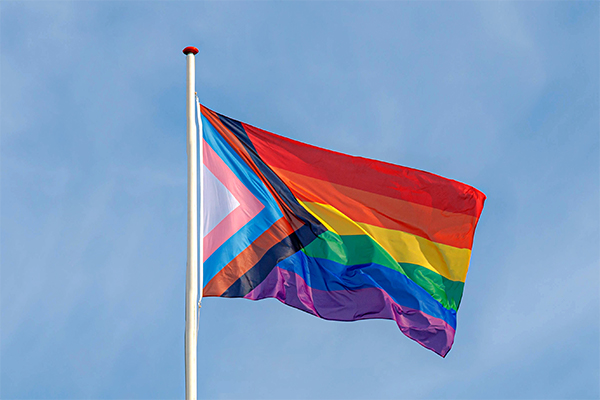
June 10, 2021
Rising above Bias and Extending Kindness to Everyone
Not far from my house is a public playground called Aidan’s Place that’s as big of a draw for kids as an ice cream truck on a hot summer day.
Slides, swings, climbing structures, and an enormous shaded sandpit bring families from all economic and racial backgrounds, creating a melting pot of play and joy.
But what makes Aidan’s place unique isn’t diversity – it’s inclusivity. Inspired by a boy named Aidan who had a rare muscular disorder that left him confined to a wheelchair, all of the playground’s equipment is universally accessible and inclusive.Inclusivity has been on my mind lately as we celebrate PRIDE month – a time when millions of people around the world gather to uplift and support the LGBTQ community – and because of Juneteenth which commemorates the end of slavery in the United States.
Both PRIDE month and Juneteenth are deeply rooted in history.
PRIDE month occurs in June because of the Stonewall uprising in June 1969 in New York City when police raided a gay bar, sparking riots and giving rise to a modern-day gay rights movement.
Juneteenth – short for June 19th – is the day in 1865 when federal troops arrived in Galveston, Texas to ensure freedom for all enslaved individuals. Abraham Lincoln signed the Emancipation Proclamation two and a half years earlier, but it didn’t immediately mean freedom for many Blacks as it applied only to Confederate-controlled areas.
Re-evaluating Inclusivity
While the pandemic has curtailed some of the parades, celebrations, and symposiums, the month of June still gives us the opportunity to honor LGBTQ and Black communities. It also gives us a chance to learn more about diversity and equity and to ask ourselves: Are we inclusive?
“Diversity is being invited to the party; inclusivity is being asked to dance,” says Verna Myers, whose consultancy teaches organizations about issues such as unconscious bias and anti-racism.
Inclusivity isn’t just about recognizing each other’s differences; it’s about being empathetic, participatory and dignifying, and respecting everyone.
Many of us may not be aware of the biases – subtle or otherwise – we have toward others. We also may not have put ourselves in the shoes of those who have been discriminated against and marginalized.
In both cases, mindfulness can help us investigate our limiting beliefs and open our hearts to others.
Rising Above Personal Biases Through Mindfulness
Like a coin with two sides – one that supports insight and the other compassion – we can use our mindfulness practice to see more clearly how we exclude rather than include and notice the moments when our hearts close instead of open.
In our daily lives, we can observe the thoughts, emotions, and sensations that arise when interacting with others and notice how they affect our behavior. Do we reserve eye contact or a smile for those who are most like us? Do we treat everyone we meet the same?
Just like mindfulness, inclusivity is a practice – one we can undertake with a willingness to see and rise above our biases and extend kindness to everyone.
If you’d like to learn more about PRIDE Month and Juneteenth, check out the links in this blog. You also can open your heart to others and foster more inclusivity through the following mindfulness exercise, based on meditation teacher Mirabai Bush’s Just Like Me practice:
- Find a quiet and comfortable place to sit and bring to mind someone you casually know or come across in your daily life – the cashier at the grocery store, the Amazon delivery person, or a neighbor you pass on the street.
- With this person in mind, repeat the following phrases:
Just like me, this person has a body and mind filled with thoughts, feelings, and emotions
Just like me, this person has experienced physical, mental, and emotional pain.
Just like me, this person has been afraid, disappointed, or lonely.
Just like me, this person wants to be safe and healthy. Just like me, this person wishes to be happy. They want to be loved.
Now, continue the practice by bringing to mind someone who is different from you and repeating the same phrases.
On-Demand Mindfulness Programs to Embrace Inclusivity
Some of the programs that can strengthen your mindfulness practice with more compassion and empathy are:
- 7 Days of Embracing Diversity
- Cultivating Compassion
- Loving Kindness
- Diversity and Inclusion Collection
Written by Kelly Barron